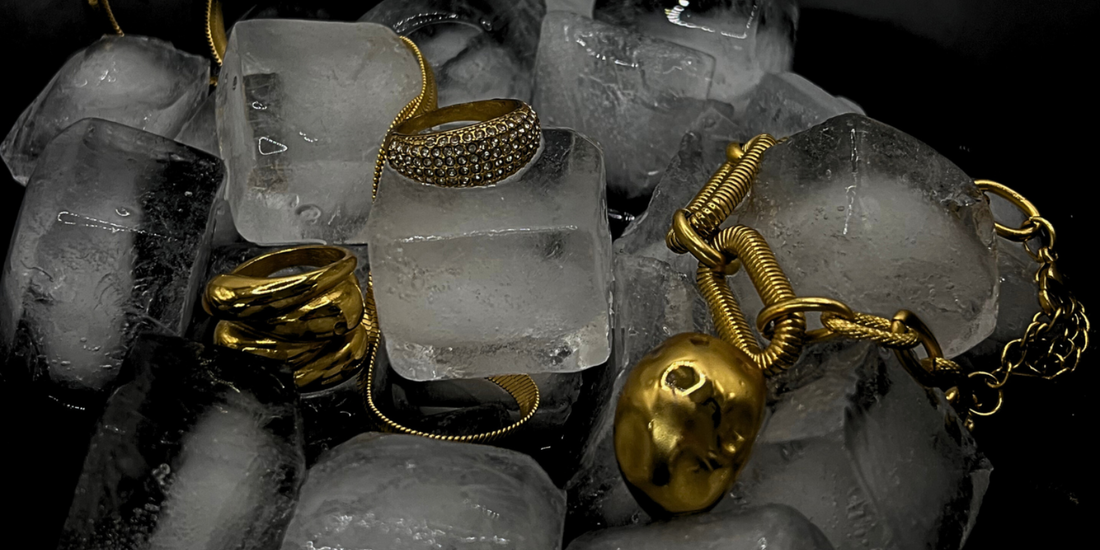
Waterproof Jewelry: Which Ones to Choose?
Wearing jewelry every day often means exposing it to water, whether in the shower, at the beach, or in the pool. However, not all jewelry is made to withstand humidity and chemicals. Which jewelry should you choose to prevent it from tarnishing or rusting? Here's a complete guide to making the right choice!
1. Why choose water-resistant jewelry? 💦
Water, especially salty or chlorinated water, can affect the shine and lifespan of jewelry. The main risks are:
- Oxidation : some metals like silver turn black when exposed to water and air.
- Rust : Poor quality jewelry containing iron can rust over time.
- Discoloration : The plating on costume jewelry can fade quickly.
2. What materials should be used for water-resistant jewelry?
1. Stainless steel: the champion of durability 🛡️
Stainless steel is an alloy designed to resist water and oxidation . It does not rust, does not tarnish and retains its shine for years.
✔️ Ideal for : everyday rings, necklaces, bracelets and earrings. ✔️ Advantage : hypoallergenic and very affordable.
👉 Want to know more? Check out our article: Why is stainless steel jewelry so trendy?
2. Solid gold: a precious and durable option ✨
14K or 18K gold does not oxidize and remains shiny, even after prolonged exposure to water.
✔️ Ideal for : high-end jewelry, durable rings and bracelets. ✔️ Advantage : does not lose its color, resists time.
⚠️ Caution : 24K gold is too malleable and therefore more prone to scratches.
3. Titanium: ultra-resistant and hypoallergenic 🔬
Titanium is a very light metal, used for its extreme resistance to water and shocks.
✔️ Ideal for : piercings, rings and durable bracelets. ✔️ Advantage : does not cause any allergic reaction.
4. Gold plating and vermeil: resistant under certain conditions 💛
Gold plating and vermeil are coated with a thin layer of gold over a metal base. Their strength depends on the thickness of the plating.
✔️ Ideal for : elegant jewelry for occasional wear. ✔️ Advantage : more accessible than solid gold.
⚠️ Caution : Avoid prolonged exposure to water to preserve the plating.
3. What jewelry should you avoid underwater? ❌
Some materials are particularly sensitive to moisture and should be avoided:
- Copper and brass : they oxidize and turn green over time.
- Low-end costume jewelry : their plating wears off quickly.
- 925 silver : although elegant, it blackens when in contact with water and requires regular maintenance.
4. How to care for your water-resistant jewelry? 🧼
Even the most durable jewelry needs a minimum of care to maintain its shine:
- Rinse them with clean water after exposure to salt or chlorinated water.
- Wipe them with a soft cloth to avoid limescale marks.
- Store them separately to avoid scratches.
Conclusion: choose wisely to avoid worrying 💍
If you're looking for jewelry that you can safely wear underwater, stainless steel, solid gold, and titanium are the best choices . They offer durability, elegance, and strength , even in harsh conditions.
👉 Find our collection of water-resistant jewelry on Rélia Bijoux .

